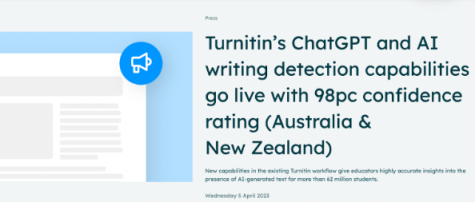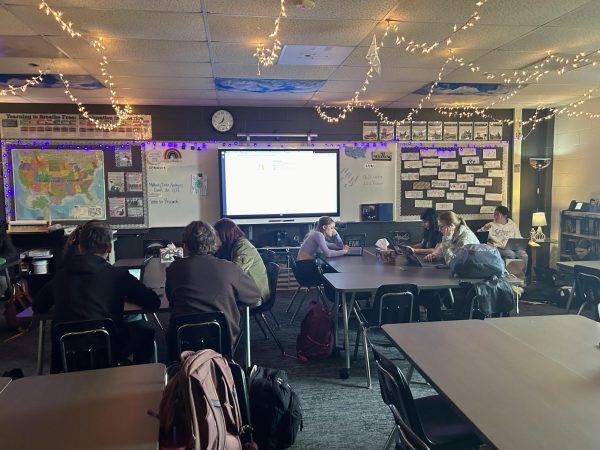AI Use: Detrimental or Beneficial?

A familiar website opening screen for many students
Chat GPT, an extremely advanced public and controversial Artificial Intelligence (AI) system, became available with mixed emotions from users in November of 2022. Ever since, this system has become increasingly popular, as it proves useful for an array of tasks for anyone to use. High schoolers in particular have found many ways to take advantage of this tool; using it to write essays, find studying tools, get answers to homework, and research websites.
The increasing reliance on AI is seen not only in schools, but everywhere, and is becoming worrisome for many people. It raises an important question: Are these advancements a sign that technology is taking control of today’s world, or will this progression of technology be a beneficial tool for modern society?
The use of AI in the future can be scary to think about. The recent change in the algorithm of Turnitin.com, a plagiarism checker used by many educators, illustrates just how impactful AI has been to school settings. The need for an AI-detecting capability in Turnitin’s website was highly requested by teachers for months before it was implemented in early April.
“These capabilities give educators a powerful tool to maintain academic integrity across their student cohorts, providing powerful, actionable and cross-institution data insights to enrich decision-making,” said Regional Vice President of Turnitin, James Thorley.
The necessity of this software is a prime example of how AI use is getting out of control. Students’ abuse of ChatGPT continues to grow exponentially as time goes on. This leaves teachers worried that kids will grow up with less integrity. If today’s teens grow up relying on AI to get through school, it is troubling to think about their productivity in higher education and even careers.
Those who are concerned about the future of AI also point out that it could cause a major loss of jobs. As reported in ABC news:
“Artificial intelligence could displace roughly 15% of workers, or 400 million people, worldwide between 2016 and 2030, according to a McKinsey study. In a scenario of wide AI adoption, the share of jobs displaced could rise to as much as 30%, the firm found.”

These negative effects span wider than just student and career life, as other hypothesized effects of AI include loss of emotional intelligence from relying on AI for decisions, profiling from access to location and interests, and even environmental impacts from the CO2 emissions that result from training AI. Many are worried that these effects might begin to envelop society soon.
It is important to understand the other side of the story, though, as AI is only a product of a rapidly digitizing world, and it might not cause as much harm as many think. AI is an advanced system that could prove useful for a multitude of reasons, such as eliminating human error, developing new algorithms, and creating new inventions.
“At the end of the day, if it is thoughts that are being conveyed that someone in the real world has to back up, that doesn’t worry me so much. When it comes to students, and it’s not their work, there is a worry there,” said Adams teacher Mr. Macfarland.
When looking at these newly emerging problems, it is hard to miss the evident disadvantages of how AI will affect the world. Although the emergence of ChatGPT in society has proved negative in some regards because of students’ reliance and the possibility of job loss, taking a side without looking at all the possibilities is not a helpful way to look at the problem.









